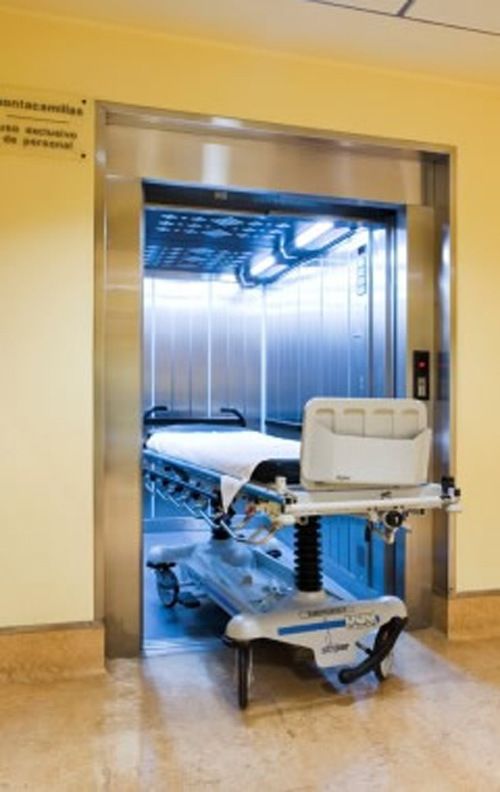If you’re managing a food testing laboratory in Delhi, you’ve likely heard of ISO 22000. But does it actually matter to you? Spoiler alert: it absolutely does. ISO 22000 isn’t just a technical standard—it’s a fundamental game-changer in ensuring food safety. Whether you’re conducting microbiological tests, chemical analysis, or verifying the integrity of raw materials, the certification could transform the way your lab operates and boosts your reputation.
Food safety is no joke. It’s a massive responsibility that affects public health, brand credibility, and the bottom line of food businesses everywhere. And with more stringent regulatory requirements globally, the demand for accredited food testing laboratories is only increasing. So, if you haven’t already looked into ISO 22000 certification, now might be the perfect time.
What is ISO 22000 Certification?
Before we go any further, let’s establish what ISO 22000 is all about. Essentially, ISO 22000 is an international standard for food safety management systems (FSMS). It’s all about helping food businesses (and those who test and analyze food) to ensure that food is safe for consumption, from farm to table.
But why is it so crucial, especially in a food hub like Delhi?
Why Does ISO 22000 Certification Matter for Food Testing Laboratories in Delhi?
Delhi is not just the capital city of India; it’s also a major hub for the food industry. Whether it’s the street food culture, the global food supply chain, or the numerous food manufacturers operating in the city, food safety here is an absolute priority. And that’s where ISO 22000 steps in.
1. Adherence to Global Standards
ISO 22000 certification aligns your laboratory with internationally recognized food safety standards. It gives your laboratory the credibility to work with not only local food manufacturers but also those operating globally. In a world where food safety scandals can destroy brands overnight, this certification tells clients and customers that you take food safety seriously.
2. Regulatory Compliance
India’s food safety regulations are becoming more stringent. The Food Safety and Standards Authority of India (FSSAI) is increasingly pushing for better controls and safer practices in food handling. By implementing ISO 22000, your lab ensures compliance with these regulations, helping you avoid penalties and maintain a smooth operation.
3. Improved Operational Efficiency
ISO 22000 helps streamline processes within your laboratory. From testing methodologies to internal audits, the framework encourages continuous improvement. By setting clear procedures for your team, you reduce the risk of errors, improve workflow efficiency, and create a safer work environment for everyone.
4. Trust and Reputation
Think about it—how many times do your clients or potential customers ask for ISO 22000 certification before choosing to work with you? Whether it’s food manufacturers or distributors, they’re all looking for reliable, trustworthy testing labs. ISO 22000 acts as a mark of trust. It signals that your lab is capable of delivering accurate, consistent, and safe results every time.
The Key Components of ISO 22000 Certification for Food Testing Labs
Let’s break down some of the core elements of ISO 22000 certification that directly impact your laboratory operations:
1. Food Safety Management System (FSMS)
ISO 22000 revolves around a robust FSMS that helps identify, assess, and control food safety hazards. For food testing labs, this is where the process begins. Your FSMS ensures that every aspect of the food testing process is monitored and controlled—be it during sample collection, testing, or reporting.
2. Hazard Analysis and Critical Control Points (HACCP)
At the heart of ISO 22000 is the HACCP approach. HACCP helps you identify hazards that could affect the safety of food and determine where to apply control measures. For food testing laboratories, this means identifying potential hazards at each stage of testing and ensuring that they are managed appropriately.
3. Communication Along the Food Chain
ISO 22000 requires effective communication across the food chain. This is essential for food testing labs because it ensures that your results and findings are communicated to the relevant stakeholders—manufacturers, suppliers, and clients. It also means that if there’s a food safety issue, you can alert the right parties immediately.
4. Continuous Improvement
As with all ISO certifications, the emphasis is on continual improvement. Your lab should consistently monitor its operations, assess food safety risks, and update practices as necessary. This helps ensure that your lab evolves with changing industry needs and continues to deliver high-quality, reliable results.
How to Achieve ISO 22000 Certification for Your Food Testing Laboratory in Delhi
Achieving ISO 22000 certification in Delhi might seem like a daunting task, but don’t worry—it’s entirely achievable. The process is straightforward when broken down into manageable steps:
Step 1: Understand the Requirements
Before starting the certification process, familiarize yourself with the ISO 22000 standard. This will help you understand what’s required and where your current practices may need to be updated. The official ISO 22000 document provides a comprehensive guide that outlines the standard’s requirements.
Step 2: Conduct a Gap Analysis
Next, assess your lab’s existing food safety practices against the ISO 22000 requirements. This is known as a gap analysis. It helps you pinpoint the areas where your lab meets the standard and where improvements are needed. It’s an essential first step before you implement any changes.
Step 3: Implement the FSMS
With the gap analysis complete, it’s time to build or refine your Food Safety Management System (FSMS). This involves creating detailed procedures for every part of your food testing process, from sample receipt to final reporting. Training your staff on these new processes is critical.
Step 4: Documentation
ISO 22000 requires extensive documentation. You’ll need to document your FSMS, your hazard analysis, and any corrective actions. The idea here is that every step of your food testing process is transparent, traceable, and accountable.
Step 5: Internal Audit
Once your FSMS is up and running, it’s time for an internal audit. This is a self-assessment to ensure that all processes are functioning as they should be. Internal audits also identify areas where improvements can be made before the official certification audit.
Step 6: Certification Audit
The final step is the official certification audit. A third-party auditor will assess your laboratory’s processes and systems to ensure that they comply with ISO 22000. If everything checks out, you’ll receive your certification. If there are any non-conformities, you’ll be given time to address them before the certification is granted.
The Benefits of ISO 22000 Certification for Food Testing Labs in Delhi
1. Market Access
ISO 22000 certification is a universally recognized standard. For food testing labs in Delhi, this means easier access to national and international markets. It’s an essential credential if you plan to work with global food manufacturers or engage in food export activities.
2. Enhanced Client Trust
Clients will always choose a lab that prioritizes food safety and quality assurance. Having ISO 22000 certification demonstrates that your lab is competent and committed to delivering reliable results. This helps build trust and fosters long-term relationships with customers.
3. Risk Reduction
The framework of ISO 22000 focuses heavily on risk management. By identifying food safety hazards early and applying appropriate controls, your lab will reduce the likelihood of errors, non-conformities, or health hazards.
Challenges in Achieving ISO 22000 Certification and How to Overcome Them
While the benefits are clear, the road to certification isn’t always smooth. Here are some common challenges that food testing labs face when pursuing ISO 22000 certification and tips to overcome them:
1. Resource Constraints
Achieving ISO 22000 can require substantial resources—time, manpower, and money. One way to manage this is by prioritizing the most critical changes first, and rolling out the rest over time. Outsourcing documentation or hiring temporary experts can help.
2. Resistance to Change
Changing workflows and processes can meet resistance from staff who are accustomed to existing methods. The best way to overcome this is through thorough training and communication. Make sure everyone understands why the certification is necessary and how it benefits the lab.
3. Maintaining Consistency
Once certified, it’s crucial to maintain the FSMS and ensure all processes remain compliant. Regular internal audits and continuous training are key to sustaining ISO 22000 standards.
Conclusion: Elevate Your Lab with ISO 22000 Certification
ISO 22000 certification is more than just a symbol of compliance. For food testing laboratories in Delhi, it represents a commitment to excellence in food safety, quality, and client service. Achieving this certification is a smart investment that can improve your lab’s efficiency, credibility, and competitive edge in the food industry.
So, what are you waiting for? If you’re serious about maintaining food safety and gaining a trusted reputation, ISO 22000 certification is the next step in your journey. Let your lab stand out as a beacon of quality in the bustling food testing sector of Delhi.


